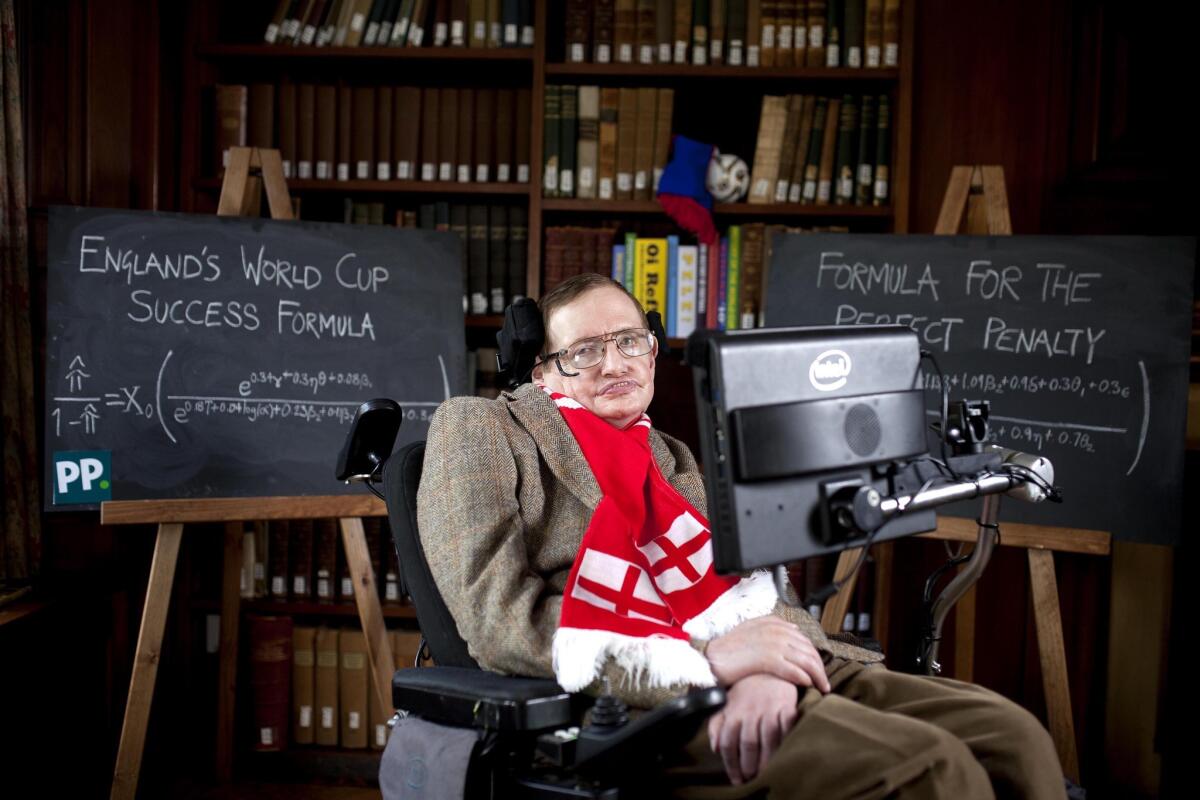Stephen Hawking has a theory on how England can win World Cup

Physicist Stephen Hawking is an expert on black holes -- and that would seem to make him eminently qualified to help England’s soccer team climb out of the World Cup hole it’s been stuck in since 1966.
In the hopes of devising a winning formula for the Three Lions, Hawking, known for his theories on physics and the universe, was hired by a betting company to break down data from every World Cup that England has played in since winning the title in 1966.
His conclusion? To have its best chance of winning in Brazil, England must avoid high temperatures, adopt an aggressive 4-3-3 formation and wear red.
Oh, and it would help if Wayne Rooney could find the net too.
But, Hawking noted, that’s only a theory. He is backing the host to win the tournament, saying, “You would be a fool to overlook Brazil. Hosts have won over 30% of the World Cups.”
According to the Associated Press, Hawking used science to produce two formulas. The first one, taking into account a host of variables, describes the probability of England winning a match, and the other addresses the country’s penalty chances.
“Ever since the dawn of civilization, people have not been content to see events as unconnected and inexplicable,” Hawking, who is almost completely paralyzed by a motor neuron disease, said at a news conference in London, speaking through a voice synthesizer from his wheelchair. “They have craved an understanding of the underlying order in the world. The World Cup is no different.”
And in Hawking’s world order, England should use its red uniform and play in a 4-3-3 rather than in a 4-4-2.
“Psychologists in Germany found red makes teams feel more confident and can lead them to being perceived as more aggressive and dominant,” he said. “Likewise, 4-3-3 is more positive, so the team benefits for similar psychological reasons.
“And our chances of winning improve by a third when kicking off at 3 o’clock local time.”
Hawking, who is known for his sense of humor, then said he found it more difficult to make sense of soccer than explain the mysteries of the universe.
“It is hugely complicated,” he said. “In fact, compared to football I think quantum physics is relatively straightforward.”
More to Read
Go beyond the scoreboard
Get the latest on L.A.'s teams in the daily Sports Report newsletter.
You may occasionally receive promotional content from the Los Angeles Times.










